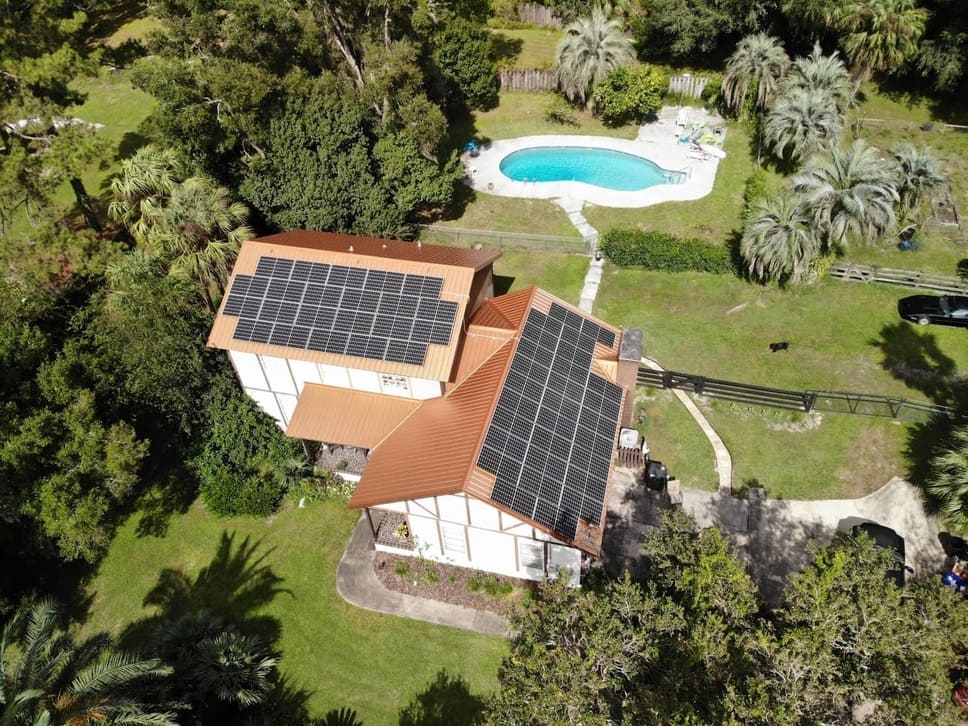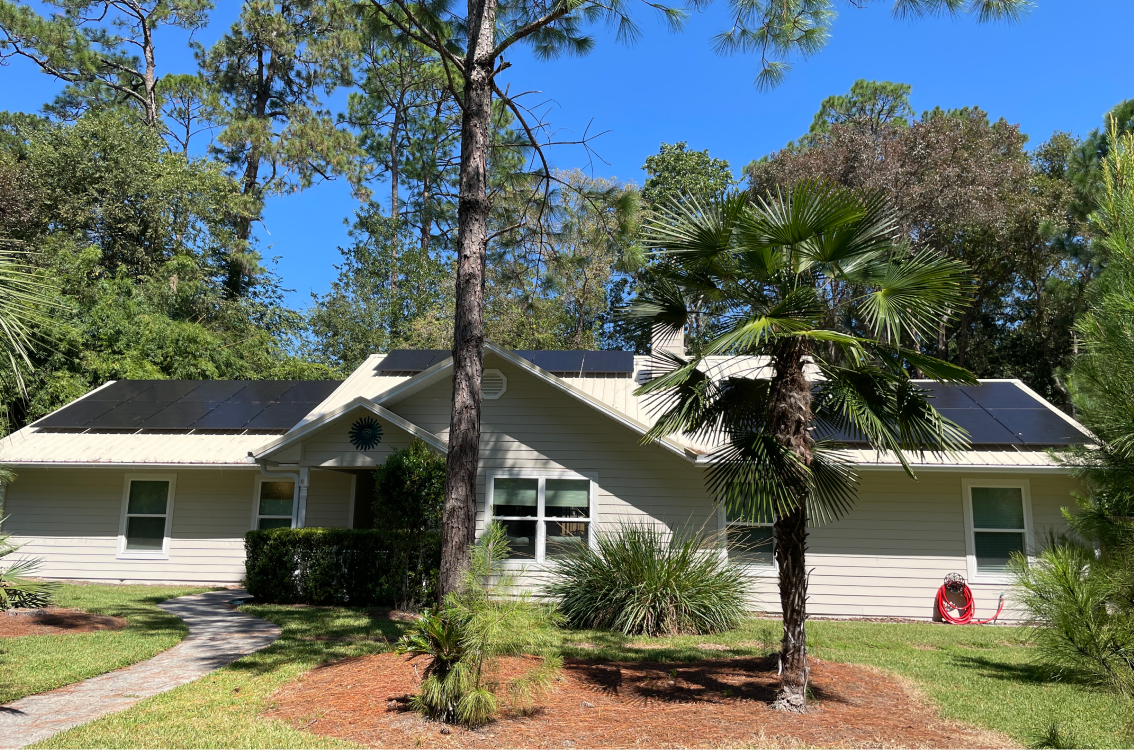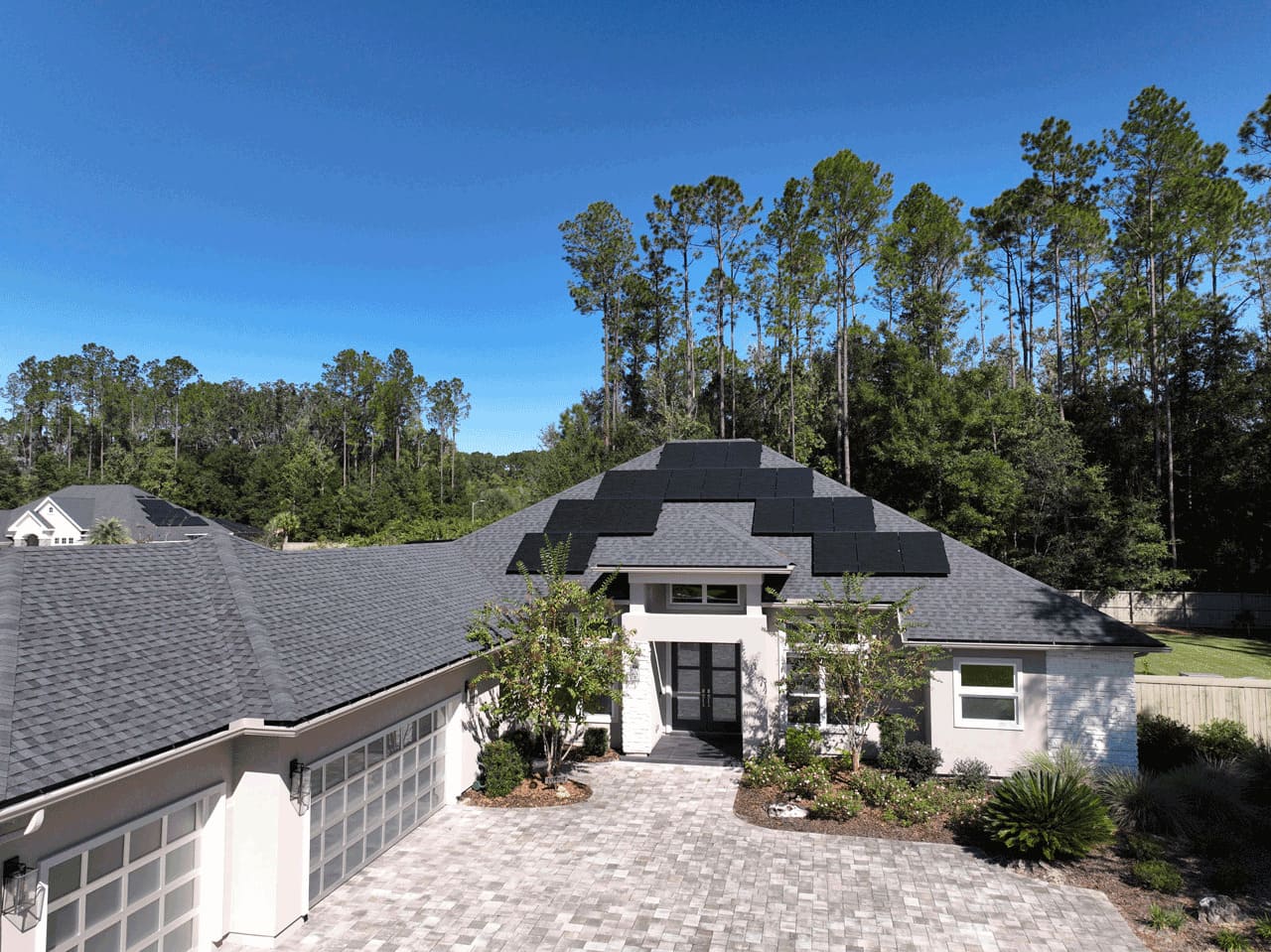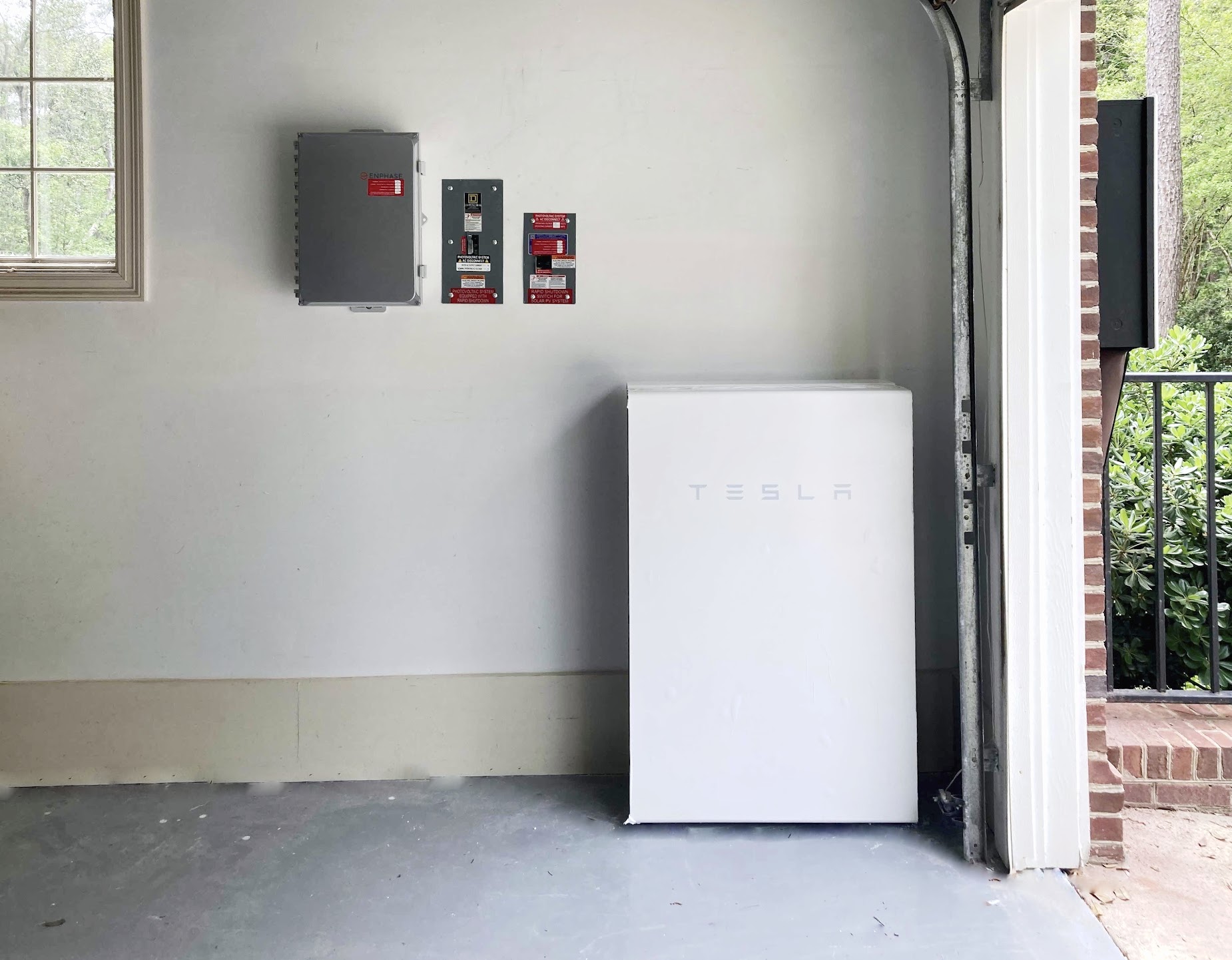Solar Photovoltaic (PV), or otherwise known as solar electric systems are becoming mainstream, and by now we have all most likely seen a few in our town or neighborhood. We all know that installing a solar energy system for our homes can reduce and even eliminate electric bills, add value, and is proven to be a great thing to do for the environment.
HOW MUCH DO SOLAR PANELS COST?
But how much do solar panels really cost in Florida? To answer that question, we have to define the given system size. A general rule of thumb at present time in Florida indicates that a 5 kilowatt (kW) unshaded solar system facing south offsets roughly $80/month. This figure may vary based on the utility company and the customer’s rate schedule. For example, in Gainesville Regional Utilities (GRU) territory, this offset may be higher, yet the offset may be slightly lower in areas of South Florida. The industry looks at the cost of solar systems in terms of cost per watt. National Renewable Energy Laboratory (NREL) report defines the installed cost of a 5 kW system at $3.90/Watt, or $19,485 fully installed.
Government service is available for solar energy production estimates.
BUT WHAT ABOUT FLORIDA?
Florida’s solar market is much different from the rest of the country’s. Lower energy rates, absence of energy policies, (such as renewable portfolio standards that would provide the marketplace for SRECs and other renewable energy certificates), and lack of state-level incentives have put tremendous price pressure on the installation market. It has forced solar companies to be leaner and provide less expensive services to homeowners. In fact, current Florida pricing from a licensed and insured contractor will range from $2.75 to $3.75 per watt ($13,750 to $18,750 or $9,625 to $13,125 per system respectively).
While upfront costs are still relatively high for a home improvement project, and vary widely, it is important to remember that: 1) solar panels for homes are a revenue-generating asset (unlike, say a countertop), 2) home solar systems are eligible for the federal tax credit for 30% of the cost, 3) When financed, solar savings often cover the loan payments for the life of the loan, paving the way to final and unconditional victory over the electric bills the day that loan is paid for.
WHICH SYSTEM SHOULD I CHOOSE BASED ON PRICE?
A properly installed 5kW solar system will produce 1350-1450 kWh per rated Watt per year. While the upfront cost presents an initial barrier to solar ownership, the lifecycle cost must not be overlooked. The concept is that the homeowner isn’t just buying the solar panels, but he or she is buying the energy yield or total kilowatt/hours (kWh) generated by the PV system over the useful life. For example, what good is buying a PV system that is 25% cheaper per rated Watt, but generates 30% less energy over a lifetime? Especially considering that the financial difference is less after the tax credit.

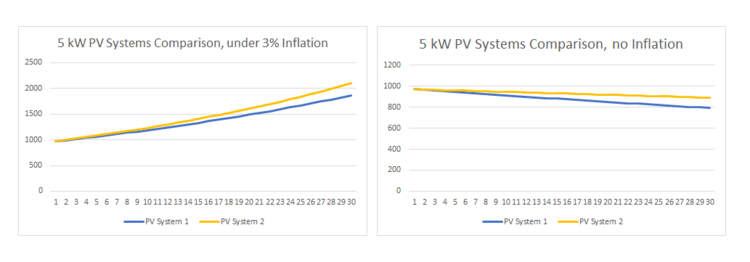
As illustrated above, cumulatively, over a 30-year useful life, the 5 kW system with the industry-standard warranty of “25 years to 80% of initial output” will most likely underperform when compared to a 5 kW high-efficiency system with “25 years to 87% of initial output”. Typically, the higher quality PV system, such as the SunPower Equinox system will cost ~20% more. But as seen above, the higher efficiency PV system will generate more energy by as much as $2800 or more, not require an inverter replacement, and pay for the price difference in solar energy generation.
Additional advantages of a higher efficiency system usually include a smaller footprint, better and longer warranty, better aesthetics, and the peace of mind that comes with a more robust, professional solar panel construction.
Ultimately, it takes a $16,250 5 kW PV system 7-10 years to pay for itself (depending on the electric rate). With a 25-year warranty becoming an industry standard and maintenance costs being very low, a PV system pays for itself 3 times over its useful life. One will argue that higher quality components and craftsmanship are essential for capitalizing the long-term return.
If you want to:
👉 ensure you’re getting the best and latest technology,
👉 feel comforted, educated, and safe
👉 deal with a local company that is always available for all your future needs
PPM is the right choice for you, as we were for over 1,000 other Florida residents who chose our team to install their solar arrays.
Click the link below to schedule your FREE consultation with one of our solar specialists today!
GET MY FREE QUOTE IN ONE DAY
WHAT IF I SELL MY HOUSE?
While in many cases the official added value of a home solar electric system may depend on local appraiser practices, the three following things are often the case:
- The home will sell faster
- The home will sell for more money
- The solar system will be paid for by the property value increase
WHAT ARE THE FINANCING TOOLS AND HOW DOES THAT AFFECT THE COST?
It’s no secret that financing costs money. However; it often makes good sense when it provides access to funding that generates revenue. Often the PV system helps to “make its own payment” by providing ever-increasing savings on the electric bills, while the bank payment remains fixed. As the result, solar may be obtained with little or no increase in the homeowner’s budget.
SHOULD I WAIT TO SEE IF THE PRICE OF SOLAR CONTINUES TO DECREASE?
Solar system prices have come down over the years and are still on the downward trend, but so are the solar incentives. By the time the solar costs come down another 30%, it is likely that the 30% tax credit will sunset. As a result, the homeowners will not be getting the better deal – by waiting they will pay a year’s worth of electric bills aside from foregoing the substantial incentives savings. What that means is that the cost of doing nothing far exceeds any price advantages down the road.
SUM IT UP FOR ME!
- Size your system based on your electric bill – ~$80/month per 5kW (5000 Watts)
- Price your system – ~$3.50/Watt
- Calculate your Tax Credit (total system cost X 30%) and resulting net cost
- Compare quotes based on lifecycle costs – in most cases, the lowest bid is not justified
Have more questions about switching to solar? Our friendly and knowledgeable solar installation professionals are ready to help you! Call Power Production Management at (866) 828-3337 or fill out our contact form.
